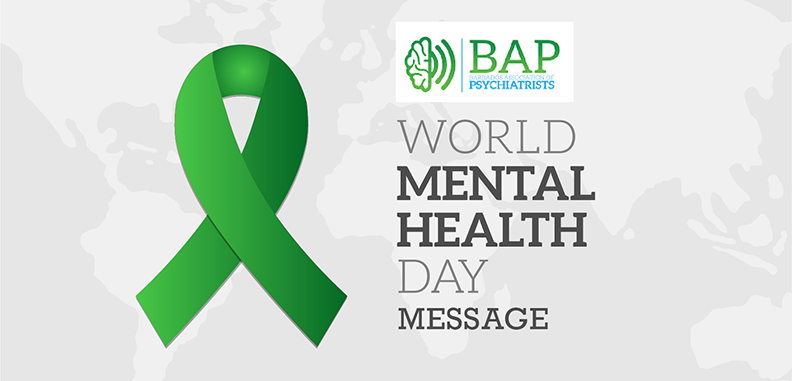This year, the theme set by the World Federation for Mental Health is Mental Health in an Unequal World. It is endorsed by the World Health Organisation (WHO) which says Mental health care for all: let’s make it a reality.
The theme speaks to the inequalities that have existed in access to mental health services and the lack of investment in mental health relative to the overall healthcare budget which contributes to the treatment gap. Mental health has notoriously been neglected in favour of physical health as if the mind is divorced from the body. People who live with mental illnesses have not been adequately supported.
The theme speaks to the general socioeconomic disparities that exist globally that impact everyone’s mental health. There are inequalities due to race, ethnicity, age, sexual orientation, gender identity, economic status, religion, political views, disability, environmental factors, and human rights abuses. This burden contributes to stigma, discrimination and mental illness. It is noted that approximately 1 billion people are living with mental disorders, that 3 million people die every year from the harmful use of alcohol, and one person dies every 40 seconds by suicide.
The novel coronavirus pandemic has widened the health, economic and social inequalities. It has been more than eighteen months of living in a public health crisis. Health and other frontline workers, teachers, students, people living alone, the elderly, people with known mental health conditions and people living with disabilities have been particularly affected. Services have been disrupted. The stressful effects of the covid-19 infection, death, bereavement, job losses, job insecurity, social isolation and economic struggles are ongoing. The polarisation is deepening as well.
There is hope. The theme also shows light and presents an opportunity for greater change. The negative impact of the pandemic on people’s mental health has driven the multiple conversations and forced governments, non-governmental organisations and the private sector to look at some of the inequalities. Sensitivity towards and awareness about mental health has further increased. It is therefore time to keep coming together, to take action and provide more support where needed. The inequality can be addressed.
The WHO is optimistic. They pointed out that during the World Health Assembly in May 2021, “Governments from around the world recognized the need to scale up quality mental health services at all levels. And some countries have found new ways of providing mental health care to their populations”. Barbados has made some strides in this regard.
The seventy-fourth World Health Assembly has updated the Comprehensive Mental Health Action Plan 2013–2030. The main objectives are unchanged: (1) more effective leadership and governance for mental health; (2) the provision of comprehensive, integrated mental
health and social care services in community-based settings; (3) implementation of strategies for promotion and prevention; and (4) strengthened information systems, evidence and research.
We can achieve these objectives. We can achieve mental health care for all. Let us make a conscious effort to work together and erase the divides that exist and that are being created out of fear and worry. The narratives of “us” versus “them”, physical health versus mental health and the “vaccinated” versus the “unvaccinated” do not support our wellbeing. A more helpful stance is one of curiosity, kindness, compassion and empathy.
As we recognise World Mental Health Day, let us shift the focus and integrate efforts at overcoming adversity and ensuring good mental health for all. This supports the global
principle of “no health without mental health”. Raise your voice and take action where there is discrimination. Let us come together and make mental health for all a reality!
Nya Maughn President
BAP email: [email protected]


Recent Comments